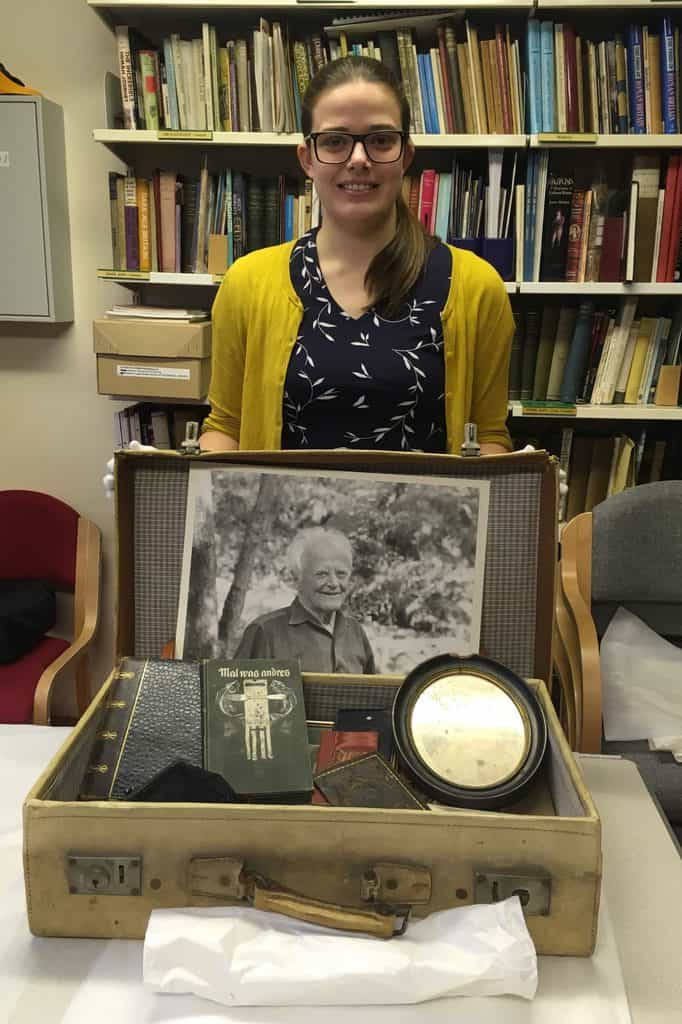The 2020 Truckell Prize, awarded annually by the Dumfriesshire and Galloway Natural History and Antiquarian Society, has been won by Kirsty Kernohan, a Ph.D. research student from Aberdeen University.
Usually, the prize is awarded in person at the last meeting of the Society’s winter lecture programme in March but the current Covid restrictions have prevented that this year.
The Truckell Prize was established in 2009 to commemorate the late Mr Alf Truckell and his outstanding contribution to local studies in Dumfries and Galloway region, through many years of service as Curator of Dumfries Museum. It is awarded for the leading original research paper submitted to the Society on a human or natural history topic relating to the geographical area of Dumfries and Galloway. Entries are welcome from all, but must meet the editorial standards required by the Society’s ‘Transactions’, which are published annually. The closing date for entries is the 1st October each year. Please see the Society’s website www.dgnhas.org.uk for further details.
Kirsty was awarded the 2020 prize for her research paper entitled ‘Dr Werner Kissling as an ethnographer and photographer of Dumfriesshire and Galloway’.
Dr Werner Kissling (1895-1988) was a German ethnographic photographer best known for his work in the Western Isles of Scotland. He was born into a wealthy family in Breslau (then in Germany, now Poland) and undertook German military service during the First World War before studying law and political history. Posted as a German diplomat to London in 1927, he never returned to Germany after the outbreak of the Second World War. Instead, he made his home in the UK and pursued a lifetime of ethnographic research and photography. Associated with Dumfries Museum from around 1958, Kissling spent thirty years documenting crafts, industry, fishing, farming and architecture in Dumfriesshire and Galloway. During this time he took over two thousand photographs, now in Dumfries Museum. As part of an internship project with Dumfries Museum in 2019, Kirsty catalogued and digitised some of these photographs and conducted interviews with people who remembered Kissling. In her research paper, Kirsty used these interviews and Kissling’s photographs to explore his practice of ethnography in the region and present an assessment of his role in the community and the value of his work.
The research paper will be published in the Society’s ‘Transactions’ later this year and will be of particular interest to those interested in the social history of the region. Membership of the Society is open to all and further information can be found on its website, www.dgnhas.org.uk






